BlockFi, a cryptocurrency lender platform, recently announced that it will stop accepting Grayscale Bitcoin Bitcoin While some may still be wondering what is Bitcoin, who created Bitcoin, or how does Bitcoin work, one thing is certain: Bitcoin has changed the world. No one can remain indifferent to this revolutionary, decentralized, digital asset nor to its blockchain technology. In fact, we’ve gone a long way ever since a Florida resident Laszlo Hanyecz made BTC’s first official commercial transaction with a real company by trading 10,000 Bitcoins for 2 pizzas at his local Papa John’s.One could now argue that Bitcoin has now a global brand because of how everyone recognizes it even if they don’t really know what it is.Added to that, Bitcoin also has the largest market cap and liquidity pool which is why many find it to be the most attractive coin out there. Bitcoin summed up· Bitcoin is a decentralized digital currency operating with no type of central control nor oversight from banks or governments, relying solely on its cryptography and peer-to-peer software.· A public ledger keeps track of all transactions by recording them. Copies are then held around the world on servers called nodes (which anyone can set up) and consensus is thus achieved on the state of the network.· Every single transaction is broadcasted publicly to the network and then shared between nodes. Miners lump these together into groups called blocks and add them permanently to the blockchain, Bitcoin’s definitive account book.· May 22 is known as the Bitcoin Pizza Day, marking the anniversary of BTC’s first official commercial transaction with a real companyHow Does Bitcoin Work? Bitcoin is a completely neutral and decentralized asset which means no one is controlling it (no bankers or oligarchs pulling strings behind the curtain), and no central entity can issue or back it. Nonetheless, Bitcoin has been recognized as legal tender in El Salvador and as it makes its way into our every day lives, other countries might soon follow suit. Bitcoin uses cryptography to assure its safety and reliability. Bitcoin transactions are verified by a process called mining which basically runs on computing power to solve mathematical puzzles. When trading Bitcoin its name is often abbreviated as BTC. What is a Blockchain Bitcoin’s system can be described as a group of computers (often called miners or nodes) which stores the Bitcoin blockchain and runs the Bitcoin code. The blockchain itself can be visualized as a string of blocks and within every block one can find immutable information, usually a collection of transactions, that are permanently recorded and which everyone can look into. Given that all of the Bitcoin network’s computers are running the exact same list of blocks, participants are assured of the process transparency because the ledger is maintained safely in this decentralized database. This makes it so that no trusted third party is necessary, and no single person is in control, rather all network participants are. As new information comes along, a freshly added block is minted and added to the blockchain while other nodes verify the whole thing. P2P Explained Bitcoin peer-to-peer (P2P) technology is meant to make instant payments easier. Bitcoin was one of the first cryptocurrencies to implement P2P and its system shifts the responsibility of processing the blockchain transactions to Bitcoin miners while giving them rewards for doing so. Bitcoin miners act as a decentralized authority which enforces the Bitcoin network’s credibility by performing these tasks and maintaining the Bitcoin ledger. The best-known case for the success of peer-to-peer BTC transactions probably lies in countries like Venezuela and El Salvador in which the younger generations have made strides in the coin’s mass adoption in their respective countries. How Does Bitcoin Make Money? Many people are still purchasing Bitcoins for the asset’s investment value rather than its capabilities of being used as a medium of exchange. As such, the asset has a speculative side which cannot be ignored due to how it correlates with its price volatility. How To Get Bitcoin? How to get into Bitcoin is a fairly easy process. Aside from the Bitcoin mining process, the asset can be exchanged for standard currencies even though it is not backed by any form of government or central entity like a bank. The Bitcoin exchange rate against the US Dollar keeps attracting investors and traders. Luckily, even the uninitiated won’t be needing a “bitcoin for dummies” guide because the asset is normally bought through a Bitcoin exchange to which you can wire money or simply pay with your credit card. Just remember to look for BTC (BTC meaning is obviously Bitcoin but there are altcoins which might try to pose as the original). Bitcoin Mining: How Are Bitcoins Created? Bitcoins are created through a process which is open for everyone to participate known as Bitcoin mining. Bitcoin mining consists of solving mathematical puzzles by means of one’s computational power, meaning that mining systems will in fact compete with one another for the asset. How Do I Start Mining Bitcoin? Even though the bitcoin digital world welcomes all with open arms, mining new bitcoins isn’t really a Bitcoin for beginners type of thing. If you want to venture into mining Bitcoins, the most obvious entry barriers are the expensive ASIC systems which you will need and the high electrical bills they will run up. ASIC stands for application-specific integrated chip. Bitcoin ASIC systems are custom bitcoin mining machines and are unquestionably one of the largest investments for bitcoin miners given that prices start at 4 figures and miners organize thousands of these into their mining pools (one ASIC system alone will potentially generate less than one single bitcoin). Network infrastructure may also be an issue as miners will need uninterrupted internet access with the least possible latency. The Bitcoin mining process has thus turned into a costly endeavor with no guaranteed results. Bitcoin Security Explained Bitcoin is a decentralized currency which is distributed in a peer-to-peer network, making it very resistant to censorship and confiscation. Bitcoin technology boasts its safety by relying on several factors such as its blockchain, the fact that it is cryptographic, decentralized, and permissionless. Being public and decentralized boosts the asset’s security as nodes verify every transaction and maintain the ledger. As such, theoretically, one would need to control over half of all the nodes to be able to manipulate it, something which albeit not impossible is certainly highly unlikely. How To Use Bitcoin Bitcoin has been growing at a steady pace and some brick-and-mortar merchants have begun to accept it as means of payment for goods and services. Online, the asset has also found its way as an accepted online payment option on pair with credit cards or Paypal. How to Buy Bitcoin Buying Bitcoin is a straightforward process. A buyer will simply need to pick a broker, opt for a paying option (wiring money, credit card, etc.), place an order, and select a safe storage option for his or her coins. Keep in mind that you should be looking for Bitcoin or BTC and not things like “Bit coin” or “bitcoin cryptocurrency” because there have been known scams and fake coins, so stick with reputable brokers. Where Can I Buy Bitcoin? Buying Bitcoin is mostly done through Bitcoin brokers, many of which will ask you for your KYC data (know your customer data: name, address, and so forth). As such, some concerns were raised over the asset’s security and user anonymity, which is why non-KYC options were also created. However, non-KYC Bitcoin buying might not be entirely legal depending on where the buyer lives. Storing your Bitcoins There are different ways of storing your Bitcoins. Regarded as the safest way of holding Bitcoin, an offline wallet (also known as cold storage or hardware wallet) is usually the go-to option for most people because of how these Bitcoin wallets are not accessible through the Internet and thus keep the asset safe offline. By not being connect to the internet, cold wallets have a much smaller risk of being compromised. However, some will prefer to store the asset in hot wallets which run on internet-connected devices (phones, computers, etc.). Investing in Bitcoin Why Is Bitcoin Valuable? Scarcity is an important element to why Bitcoin has value. Having unlimited supply will obviously not translate to being a good store of value. Bitcoin supply is capped at 21 million. Another factor to consider is that the asset is being considered by many as “freedom money” given that it cannot be inflated away, nor can it be censored or confiscated. This makes it self-evident that Bitcoins are standing above concepts like sovereignty, user’s personal preferences, creeds, and so forth. Moreover, the monetary policy some of the newer crypto projects out there can be altered at a moment’s notice, whereas Bitcoin’s monetary policy was fixed at its inception, meaning that it is a much steadier asset than any of its other digital counterparts. Can Bitcoin be converted to cash? Bitcoin can be converted to cash through third-party broker exchanges. The process requires the seller to deposit his or her Bitcoins into the exchange and, once verification that the asset was received takes place, a withdrawal request for fiat currency can be made. The money will then be wired into the sellers account and usually the broker will require you to use the same account which is connected to it (as to prevent money laundering schemes). Another less used method one can resort to are peer-to-peer selling platforms.There are at least 3 things to consider before cashing out your Bitcoin: taxes, fees, and speed Bitcoin Investing Risks Every investment comes with risk. Bitcoin, albeit being a digital asset, is no different. In fact, there are some risks you should know about when dealing with BTC. Regulatory risk Decentralization comes at a price. As Bitcoin makes great strides into our everyday lives and begins to be recognized as legal tender, it inherently becomes a competitor to fiat, or government currency. Obviously, it can (and many are certain that it already has) become a digital medium for illegal activities such as money laundering, tax evasion, and other underground market payments. This makes it clear that governments will look into either regulate, restrict, or even attempt to ban its use and/or sale. Other efforts might include actively enforcing KYC requirements to brokers or having participants reporting transactions over a certain amount. Regardless, the lack of Bitcoin regulation, especially in a uniformed manner, will certainly make some weary about its longevity and universality. Security risk As the Bitcoin mining process barriers of entry get higher and higher, it comes as no surprise that many Bitcoin holders will have acquired it by resorting to one of the many available online exchanges. As it happens with everything digital, these exchanges are also risk prone either by malware, glitches or even hackers. If a hacker takes over one’s computer and manages to get his or her hands on a private encryption key, they will be easily able to steal Bitcoin (and remember, Bitcoin transactions are permanent and there is no insurance or refunds). The exchanges themselves are honeypots due to how some of their users simply aren’t resorting to holding their Bitcoin in safer places. Insurance risk Bitcoin accounts and exchanges are usually not insured in any way. However, some exchanges have begun to provide Bitcoin insurance to its investors, namely with FDIC insurance for a portion of transactions which involve cash. Fraud risk Bitcoin encryption through private keys allows for ownership verification and transactions to be registered. However, there have been known cases of scammers attempting to sell fake Bitcoin or operating Bitcoin Ponzi schemes. Market risk Bitcoin value fluctuates and cryptocurrency volatility is a quite common occurrence in the digital crypto sphere. As such, Bitcoin price swings are to be expected. As an example of how extreme things can go, Bitcoin fell about 80% in one single day in 2014. People have brought up the subject of the Bitcoin bubble time and time again, but the truth is that the project is holding on despite having plenty of competitors. So, Is Bitcoin a Good Investment? A good investment can be defined in many ways. Bitcoin investments can greatly vary due to how some people interpret it as a speculative short-term play while others see it as a hedge against inflation or aim for long-term adoption and appreciation. It will come down to one’s own perception and assessment of the investment’s risk and reward. What Are the Issues with Bitcoin? Volatility is still and issue with Bitcoin as is the lack of true anonymity. However, the main issue with the digital asset is as its popularity keeps growing, it becomes slower and slower, cumbersome, and, more importantly, expensive to use. Transactions take a long time to be validated and fees have skyrocketed, meaning that Bitcoin is slowly walking a path in which might lead to its unviability as medium of exchange. Electricity consumption has also been a source of concern. The History: Who created Bitcoin? While some people still believe that there is someone who owns Bitcoin, the truth is that Bitcoin has had a somewhat immaculate conception in the world of finance. It is a unique historical “accident” that one might say it would probably be impossible to recreate (as many of the newer digital projects have unfortunately shown us). Anonymous Bitcoin creator Satoshi Nakamoto (who can either be an individual or group of individuals) left the project very early on and as we all know every prominent cryptocurrency creator who sticks around can be turned into a single point of failure of the project, meaning that taking credit for the project could in fact hurt it. Moreover, Bitcoins value was near zero for a long time given despite having first mover advantage. That got to fly under the radar of both the public and the regulators unlike the newer projects out there. When Was Bitcoin Created? The Bitcoin white paper was published by Satoshi Nakamoto in 2008 and the original software which runs the asset was released the following year. Bitcoin Forking History Throughout Bitcoin’s history there have been some accounts of disagreement between miners and developers with even factions being created. These led to significant splits in the community which surrounds crypto and the asset, some of which led to the point in which a “fork” had to be performed on the network. Forking happens as developers or miners believe that a significant change must be made in the network’s protocol.In this particular case, the process led to the creation of a new type of Bitcoin with a completely different name. If the new coin is set to share the previous coin’s transaction history up to the split point, the process is considered to be a “hard fork”. Bitcoin Cash (launched in August 2017), Bitcoin Gold (launched in October 2017), and Bitcoin Satoshi’s Vision (launched in November 2018) were all a result of a hard fork in Bitcoin’s network. If the fork, however, allows for the protocol to remain compatible with its previous iteration, that it is known as a “soft fork”. Bitcoin’s functionalities like SegWit are a result of soft forks in the network. What is Bitcoin Concluded While some believe Bitcoin to be the future of currency, others see it as a speculative play. Regardless of how people see Bitcoin, the decentralized aspect of the project completely revolutionized finance and the world itself much akin to how gold overcame seashells many, many centuries ago. With no central control or oversight from governments or banks, Bitcoin is inessence an unbelievably strong social consensus with a monetary policy written in stone and a max supply which can be compared to a religious dogma. FAQ Can Bitcoin be Considered a Real Currency? Bitcoin is referred to by many as a form of digital currency and/or the main alternative to fiat money which is controlled by central entities such as banks. Bitcoin differs due to how no monetary authority can issue it and, as we know, currencies offer value due to their ability to operate as a store of value and, obviously, as a unit of exchange. People who aren’t digitally native or who can’t go beyond the concept of fiat currency may still wonder what do bitcoins look like but there are other countries which have made great strides into adapting themselves to this new currency. Countries like El Salvador, for example, have recognized it as legal tender, which means that if you ask someone over there questions like how to get into bitcoin, what is bitcoin and how does it work, they’ll have the answer on the tip of their tongue even if they don’t know bitcoins definition. The revolution might have just begun, and we might see Bitcoin being used on a daily basis much like credit cards. Why do people want Bitcoins? The reasons why people want Bitcoins can greatly vary. While some believe it will be the currency of the future, assuming that we’re going digital on all fronts, others just use it for speculative plays and quick profits. What makes Bitcoin a new kind of money? Mainly, what makes Bitcoin a new kind of money is its digital, decentralized nature. Many crypto enthusiasts call Bitcoin “freedom money”. Your bank accounts can be frozen, your licenses can even be revoked, the list goes on. If a government has immunity over their actions and is able freeze your assets on just the slight suspicion of wrongdoing (or if they find out you don’t support their “regime”) then it might be the time to do so and start looking at Bitcoin differently because they can try and try again but no one will be able to fully stop peer-to-peer bitcoin or lightning transactions to and from non-custodial wallets, meaning people will still be able to receive and send bitcoins as they please. What is the purpose of Bitcoin? Bitcoin’s original purpose was to provide a way for people to be able to send money over the internet and to provide a digital, decentralized alternative in what concerns payment systems. This is the main reason why some people out there love bitcoin more than cash. How Many Bitcoins Are There? By design, Bitcoins supply is hard capped at 21 million, meaning that its supply is finite.After the asset’s supply reaches 21 million, no additional coins will be generated. Is Bitcoin a Scam? Bitcoin is intangible but its value is certainly real and its presence in the financial world is robust and longstanding. With that being said, there are scammers out there who will try to swindle people with nefarious tactics and scams. Nonetheless, these problems are rooted in human behavior and not in the coin itself. The digital asset’s code is open source, and anyone can download and review it. Can you buy a house with Bitcoin? Buying a house with Bitcoins or another digital crypto asset is certainly a very real possibility. To do so, one should look for a real estate agency which has experience dealing with Bitcoins and crypto transactions. However, keep in mind that a mortgage on the property might not be possible due to how some banks are still hesitant on the asset. Even if the coin is world famous now, there are still many places where you’ll be asked what is btc. However, if the seller will accept Bitcoin, the only thing left is to negotiate the selling price in BTC. Who controls Bitcoin price? Bitcoin is not issued by an entity like a central bank, nor it is backed by a government. Accordingly, monetary policy, and other measurements of economic growth simply do not apply when dealing with Bitcoins. However, its price can still be influenced by a variety of factors like the digital asset’s supply, the market’s demand, the cost of producing it, the miners’ rewards, regulations regarding the asset’s sale and use, news developments, competing crypto, and so forth. How long does it take to mine 1 Bitcoin? The length it takes can vary depending on the block reward’s amount (how much will crypto miners will receive for generating a new block).It is estimated that on average a new block is produced every 10 minutes, meaning that a new Bitcoin gets mined approximately every 1.6 minutes. Is mining Bitcoin illegal? The legality of this process will most likely solely depend on your geographic location. As Bitcoin threatens fiat currencies’ dominance and governmental control, the digital asset has been declared to be completely illegal in some countries. With that being said, ownership and the coin’s mining process are still legal in many more countries than not. While some may still be wondering what is Bitcoin, who created Bitcoin, or how does Bitcoin work, one thing is certain: Bitcoin has changed the world. No one can remain indifferent to this revolutionary, decentralized, digital asset nor to its blockchain technology. In fact, we’ve gone a long way ever since a Florida resident Laszlo Hanyecz made BTC’s first official commercial transaction with a real company by trading 10,000 Bitcoins for 2 pizzas at his local Papa John’s.One could now argue that Bitcoin has now a global brand because of how everyone recognizes it even if they don’t really know what it is.Added to that, Bitcoin also has the largest market cap and liquidity pool which is why many find it to be the most attractive coin out there. Bitcoin summed up· Bitcoin is a decentralized digital currency operating with no type of central control nor oversight from banks or governments, relying solely on its cryptography and peer-to-peer software.· A public ledger keeps track of all transactions by recording them. Copies are then held around the world on servers called nodes (which anyone can set up) and consensus is thus achieved on the state of the network.· Every single transaction is broadcasted publicly to the network and then shared between nodes. Miners lump these together into groups called blocks and add them permanently to the blockchain, Bitcoin’s definitive account book.· May 22 is known as the Bitcoin Pizza Day, marking the anniversary of BTC’s first official commercial transaction with a real companyHow Does Bitcoin Work? Bitcoin is a completely neutral and decentralized asset which means no one is controlling it (no bankers or oligarchs pulling strings behind the curtain), and no central entity can issue or back it. Nonetheless, Bitcoin has been recognized as legal tender in El Salvador and as it makes its way into our every day lives, other countries might soon follow suit. Bitcoin uses cryptography to assure its safety and reliability. Bitcoin transactions are verified by a process called mining which basically runs on computing power to solve mathematical puzzles. When trading Bitcoin its name is often abbreviated as BTC. What is a Blockchain Bitcoin’s system can be described as a group of computers (often called miners or nodes) which stores the Bitcoin blockchain and runs the Bitcoin code. The blockchain itself can be visualized as a string of blocks and within every block one can find immutable information, usually a collection of transactions, that are permanently recorded and which everyone can look into. Given that all of the Bitcoin network’s computers are running the exact same list of blocks, participants are assured of the process transparency because the ledger is maintained safely in this decentralized database. This makes it so that no trusted third party is necessary, and no single person is in control, rather all network participants are. As new information comes along, a freshly added block is minted and added to the blockchain while other nodes verify the whole thing. P2P Explained Bitcoin peer-to-peer (P2P) technology is meant to make instant payments easier. Bitcoin was one of the first cryptocurrencies to implement P2P and its system shifts the responsibility of processing the blockchain transactions to Bitcoin miners while giving them rewards for doing so. Bitcoin miners act as a decentralized authority which enforces the Bitcoin network’s credibility by performing these tasks and maintaining the Bitcoin ledger. The best-known case for the success of peer-to-peer BTC transactions probably lies in countries like Venezuela and El Salvador in which the younger generations have made strides in the coin’s mass adoption in their respective countries. How Does Bitcoin Make Money? Many people are still purchasing Bitcoins for the asset’s investment value rather than its capabilities of being used as a medium of exchange. As such, the asset has a speculative side which cannot be ignored due to how it correlates with its price volatility. How To Get Bitcoin? How to get into Bitcoin is a fairly easy process. Aside from the Bitcoin mining process, the asset can be exchanged for standard currencies even though it is not backed by any form of government or central entity like a bank. The Bitcoin exchange rate against the US Dollar keeps attracting investors and traders. Luckily, even the uninitiated won’t be needing a “bitcoin for dummies” guide because the asset is normally bought through a Bitcoin exchange to which you can wire money or simply pay with your credit card. Just remember to look for BTC (BTC meaning is obviously Bitcoin but there are altcoins which might try to pose as the original). Bitcoin Mining: How Are Bitcoins Created? Bitcoins are created through a process which is open for everyone to participate known as Bitcoin mining. Bitcoin mining consists of solving mathematical puzzles by means of one’s computational power, meaning that mining systems will in fact compete with one another for the asset. How Do I Start Mining Bitcoin? Even though the bitcoin digital world welcomes all with open arms, mining new bitcoins isn’t really a Bitcoin for beginners type of thing. If you want to venture into mining Bitcoins, the most obvious entry barriers are the expensive ASIC systems which you will need and the high electrical bills they will run up. ASIC stands for application-specific integrated chip. Bitcoin ASIC systems are custom bitcoin mining machines and are unquestionably one of the largest investments for bitcoin miners given that prices start at 4 figures and miners organize thousands of these into their mining pools (one ASIC system alone will potentially generate less than one single bitcoin). Network infrastructure may also be an issue as miners will need uninterrupted internet access with the least possible latency. The Bitcoin mining process has thus turned into a costly endeavor with no guaranteed results. Bitcoin Security Explained Bitcoin is a decentralized currency which is distributed in a peer-to-peer network, making it very resistant to censorship and confiscation. Bitcoin technology boasts its safety by relying on several factors such as its blockchain, the fact that it is cryptographic, decentralized, and permissionless. Being public and decentralized boosts the asset’s security as nodes verify every transaction and maintain the ledger. As such, theoretically, one would need to control over half of all the nodes to be able to manipulate it, something which albeit not impossible is certainly highly unlikely. How To Use Bitcoin Bitcoin has been growing at a steady pace and some brick-and-mortar merchants have begun to accept it as means of payment for goods and services. Online, the asset has also found its way as an accepted online payment option on pair with credit cards or Paypal. How to Buy Bitcoin Buying Bitcoin is a straightforward process. A buyer will simply need to pick a broker, opt for a paying option (wiring money, credit card, etc.), place an order, and select a safe storage option for his or her coins. Keep in mind that you should be looking for Bitcoin or BTC and not things like “Bit coin” or “bitcoin cryptocurrency” because there have been known scams and fake coins, so stick with reputable brokers. Where Can I Buy Bitcoin? Buying Bitcoin is mostly done through Bitcoin brokers, many of which will ask you for your KYC data (know your customer data: name, address, and so forth). As such, some concerns were raised over the asset’s security and user anonymity, which is why non-KYC options were also created. However, non-KYC Bitcoin buying might not be entirely legal depending on where the buyer lives. Storing your Bitcoins There are different ways of storing your Bitcoins. Regarded as the safest way of holding Bitcoin, an offline wallet (also known as cold storage or hardware wallet) is usually the go-to option for most people because of how these Bitcoin wallets are not accessible through the Internet and thus keep the asset safe offline. By not being connect to the internet, cold wallets have a much smaller risk of being compromised. However, some will prefer to store the asset in hot wallets which run on internet-connected devices (phones, computers, etc.). Investing in Bitcoin Why Is Bitcoin Valuable? Scarcity is an important element to why Bitcoin has value. Having unlimited supply will obviously not translate to being a good store of value. Bitcoin supply is capped at 21 million. Another factor to consider is that the asset is being considered by many as “freedom money” given that it cannot be inflated away, nor can it be censored or confiscated. This makes it self-evident that Bitcoins are standing above concepts like sovereignty, user’s personal preferences, creeds, and so forth. Moreover, the monetary policy some of the newer crypto projects out there can be altered at a moment’s notice, whereas Bitcoin’s monetary policy was fixed at its inception, meaning that it is a much steadier asset than any of its other digital counterparts. Can Bitcoin be converted to cash? Bitcoin can be converted to cash through third-party broker exchanges. The process requires the seller to deposit his or her Bitcoins into the exchange and, once verification that the asset was received takes place, a withdrawal request for fiat currency can be made. The money will then be wired into the sellers account and usually the broker will require you to use the same account which is connected to it (as to prevent money laundering schemes). Another less used method one can resort to are peer-to-peer selling platforms.There are at least 3 things to consider before cashing out your Bitcoin: taxes, fees, and speed Bitcoin Investing Risks Every investment comes with risk. Bitcoin, albeit being a digital asset, is no different. In fact, there are some risks you should know about when dealing with BTC. Regulatory risk Decentralization comes at a price. As Bitcoin makes great strides into our everyday lives and begins to be recognized as legal tender, it inherently becomes a competitor to fiat, or government currency. Obviously, it can (and many are certain that it already has) become a digital medium for illegal activities such as money laundering, tax evasion, and other underground market payments. This makes it clear that governments will look into either regulate, restrict, or even attempt to ban its use and/or sale. Other efforts might include actively enforcing KYC requirements to brokers or having participants reporting transactions over a certain amount. Regardless, the lack of Bitcoin regulation, especially in a uniformed manner, will certainly make some weary about its longevity and universality. Security risk As the Bitcoin mining process barriers of entry get higher and higher, it comes as no surprise that many Bitcoin holders will have acquired it by resorting to one of the many available online exchanges. As it happens with everything digital, these exchanges are also risk prone either by malware, glitches or even hackers. If a hacker takes over one’s computer and manages to get his or her hands on a private encryption key, they will be easily able to steal Bitcoin (and remember, Bitcoin transactions are permanent and there is no insurance or refunds). The exchanges themselves are honeypots due to how some of their users simply aren’t resorting to holding their Bitcoin in safer places. Insurance risk Bitcoin accounts and exchanges are usually not insured in any way. However, some exchanges have begun to provide Bitcoin insurance to its investors, namely with FDIC insurance for a portion of transactions which involve cash. Fraud risk Bitcoin encryption through private keys allows for ownership verification and transactions to be registered. However, there have been known cases of scammers attempting to sell fake Bitcoin or operating Bitcoin Ponzi schemes. Market risk Bitcoin value fluctuates and cryptocurrency volatility is a quite common occurrence in the digital crypto sphere. As such, Bitcoin price swings are to be expected. As an example of how extreme things can go, Bitcoin fell about 80% in one single day in 2014. People have brought up the subject of the Bitcoin bubble time and time again, but the truth is that the project is holding on despite having plenty of competitors. So, Is Bitcoin a Good Investment? A good investment can be defined in many ways. Bitcoin investments can greatly vary due to how some people interpret it as a speculative short-term play while others see it as a hedge against inflation or aim for long-term adoption and appreciation. It will come down to one’s own perception and assessment of the investment’s risk and reward. What Are the Issues with Bitcoin? Volatility is still and issue with Bitcoin as is the lack of true anonymity. However, the main issue with the digital asset is as its popularity keeps growing, it becomes slower and slower, cumbersome, and, more importantly, expensive to use. Transactions take a long time to be validated and fees have skyrocketed, meaning that Bitcoin is slowly walking a path in which might lead to its unviability as medium of exchange. Electricity consumption has also been a source of concern. The History: Who created Bitcoin? While some people still believe that there is someone who owns Bitcoin, the truth is that Bitcoin has had a somewhat immaculate conception in the world of finance. It is a unique historical “accident” that one might say it would probably be impossible to recreate (as many of the newer digital projects have unfortunately shown us). Anonymous Bitcoin creator Satoshi Nakamoto (who can either be an individual or group of individuals) left the project very early on and as we all know every prominent cryptocurrency creator who sticks around can be turned into a single point of failure of the project, meaning that taking credit for the project could in fact hurt it. Moreover, Bitcoins value was near zero for a long time given despite having first mover advantage. That got to fly under the radar of both the public and the regulators unlike the newer projects out there. When Was Bitcoin Created? The Bitcoin white paper was published by Satoshi Nakamoto in 2008 and the original software which runs the asset was released the following year. Bitcoin Forking History Throughout Bitcoin’s history there have been some accounts of disagreement between miners and developers with even factions being created. These led to significant splits in the community which surrounds crypto and the asset, some of which led to the point in which a “fork” had to be performed on the network. Forking happens as developers or miners believe that a significant change must be made in the network’s protocol.In this particular case, the process led to the creation of a new type of Bitcoin with a completely different name. If the new coin is set to share the previous coin’s transaction history up to the split point, the process is considered to be a “hard fork”. Bitcoin Cash (launched in August 2017), Bitcoin Gold (launched in October 2017), and Bitcoin Satoshi’s Vision (launched in November 2018) were all a result of a hard fork in Bitcoin’s network. If the fork, however, allows for the protocol to remain compatible with its previous iteration, that it is known as a “soft fork”. Bitcoin’s functionalities like SegWit are a result of soft forks in the network. What is Bitcoin Concluded While some believe Bitcoin to be the future of currency, others see it as a speculative play. Regardless of how people see Bitcoin, the decentralized aspect of the project completely revolutionized finance and the world itself much akin to how gold overcame seashells many, many centuries ago. With no central control or oversight from governments or banks, Bitcoin is inessence an unbelievably strong social consensus with a monetary policy written in stone and a max supply which can be compared to a religious dogma. FAQ Can Bitcoin be Considered a Real Currency? Bitcoin is referred to by many as a form of digital currency and/or the main alternative to fiat money which is controlled by central entities such as banks. Bitcoin differs due to how no monetary authority can issue it and, as we know, currencies offer value due to their ability to operate as a store of value and, obviously, as a unit of exchange. People who aren’t digitally native or who can’t go beyond the concept of fiat currency may still wonder what do bitcoins look like but there are other countries which have made great strides into adapting themselves to this new currency. Countries like El Salvador, for example, have recognized it as legal tender, which means that if you ask someone over there questions like how to get into bitcoin, what is bitcoin and how does it work, they’ll have the answer on the tip of their tongue even if they don’t know bitcoins definition. The revolution might have just begun, and we might see Bitcoin being used on a daily basis much like credit cards. Why do people want Bitcoins? The reasons why people want Bitcoins can greatly vary. While some believe it will be the currency of the future, assuming that we’re going digital on all fronts, others just use it for speculative plays and quick profits. What makes Bitcoin a new kind of money? Mainly, what makes Bitcoin a new kind of money is its digital, decentralized nature. Many crypto enthusiasts call Bitcoin “freedom money”. Your bank accounts can be frozen, your licenses can even be revoked, the list goes on. If a government has immunity over their actions and is able freeze your assets on just the slight suspicion of wrongdoing (or if they find out you don’t support their “regime”) then it might be the time to do so and start looking at Bitcoin differently because they can try and try again but no one will be able to fully stop peer-to-peer bitcoin or lightning transactions to and from non-custodial wallets, meaning people will still be able to receive and send bitcoins as they please. What is the purpose of Bitcoin? Bitcoin’s original purpose was to provide a way for people to be able to send money over the internet and to provide a digital, decentralized alternative in what concerns payment systems. This is the main reason why some people out there love bitcoin more than cash. How Many Bitcoins Are There? By design, Bitcoins supply is hard capped at 21 million, meaning that its supply is finite.After the asset’s supply reaches 21 million, no additional coins will be generated. Is Bitcoin a Scam? Bitcoin is intangible but its value is certainly real and its presence in the financial world is robust and longstanding. With that being said, there are scammers out there who will try to swindle people with nefarious tactics and scams. Nonetheless, these problems are rooted in human behavior and not in the coin itself. The digital asset’s code is open source, and anyone can download and review it. Can you buy a house with Bitcoin? Buying a house with Bitcoins or another digital crypto asset is certainly a very real possibility. To do so, one should look for a real estate agency which has experience dealing with Bitcoins and crypto transactions. However, keep in mind that a mortgage on the property might not be possible due to how some banks are still hesitant on the asset. Even if the coin is world famous now, there are still many places where you’ll be asked what is btc. However, if the seller will accept Bitcoin, the only thing left is to negotiate the selling price in BTC. Who controls Bitcoin price? Bitcoin is not issued by an entity like a central bank, nor it is backed by a government. Accordingly, monetary policy, and other measurements of economic growth simply do not apply when dealing with Bitcoins. However, its price can still be influenced by a variety of factors like the digital asset’s supply, the market’s demand, the cost of producing it, the miners’ rewards, regulations regarding the asset’s sale and use, news developments, competing crypto, and so forth. How long does it take to mine 1 Bitcoin? The length it takes can vary depending on the block reward’s amount (how much will crypto miners will receive for generating a new block).It is estimated that on average a new block is produced every 10 minutes, meaning that a new Bitcoin gets mined approximately every 1.6 minutes. Is mining Bitcoin illegal? The legality of this process will most likely solely depend on your geographic location. As Bitcoin threatens fiat currencies’ dominance and governmental control, the digital asset has been declared to be completely illegal in some countries. With that being said, ownership and the coin’s mining process are still legal in many more countries than not. Read this Term Trust (GBTC) as collateral. According to The Straits Times, citing Bloomberg, it stopped accepting shares of the fund as collateral.
In response to Bloomberg’s report, the New Jersey-based lender said it is winding down ‘a couple’ of loans with GBTC as collateral. “We are not saying that we won’t support GBTC as collateral moving forward. Like any collateral, we constantly evaluate appropriate collateral haircut ratios and aim to accept as many types of collateral that our clients hold as possible,” BlockFi commented. However, Grayscale Investments declined to issue any statement about the matter.
BlockFi and FTX
Last month, BlockFi signed a $250 million revolving credit agreement with FTX. According to Zac Prince, BlockFi’s Chief Executive Officer, the credit facility provides them with access to capital that ‘further bolsters our balance sheet and platform strength’ in the midst of the crisis it has been facing.
“The proceeds of the credit facility are intended to be contractually subordinate to all client balances across all account types (BIA, BPY & loan collateral) and will be used as needed. Throughout the market volatility of the last several weeks, I’m incredibly proud of how our team, platform and risk management protocols have performed. Today’s landmark announcement reinforces BlockFi’s commitment to serving its clients and ensuring their funds are safeguarded,” Prince pointed out at that time.
He added: “This agreement also unlocks future collaboration and innovation between BlockFi & FTX as we work to accelerate prosperity worldwide through crypto financial services. This is a significant step forward in our commitment to the strength and accessibility of crypto markets.”
BlockFi, a cryptocurrency lender platform, recently announced that it will stop accepting Grayscale Bitcoin Bitcoin While some may still be wondering what is Bitcoin, who created Bitcoin, or how does Bitcoin work, one thing is certain: Bitcoin has changed the world. No one can remain indifferent to this revolutionary, decentralized, digital asset nor to its blockchain technology. In fact, we’ve gone a long way ever since a Florida resident Laszlo Hanyecz made BTC’s first official commercial transaction with a real company by trading 10,000 Bitcoins for 2 pizzas at his local Papa John’s.One could now argue that Bitcoin has now a global brand because of how everyone recognizes it even if they don’t really know what it is.Added to that, Bitcoin also has the largest market cap and liquidity pool which is why many find it to be the most attractive coin out there. Bitcoin summed up· Bitcoin is a decentralized digital currency operating with no type of central control nor oversight from banks or governments, relying solely on its cryptography and peer-to-peer software.· A public ledger keeps track of all transactions by recording them. Copies are then held around the world on servers called nodes (which anyone can set up) and consensus is thus achieved on the state of the network.· Every single transaction is broadcasted publicly to the network and then shared between nodes. Miners lump these together into groups called blocks and add them permanently to the blockchain, Bitcoin’s definitive account book.· May 22 is known as the Bitcoin Pizza Day, marking the anniversary of BTC’s first official commercial transaction with a real companyHow Does Bitcoin Work? Bitcoin is a completely neutral and decentralized asset which means no one is controlling it (no bankers or oligarchs pulling strings behind the curtain), and no central entity can issue or back it. Nonetheless, Bitcoin has been recognized as legal tender in El Salvador and as it makes its way into our every day lives, other countries might soon follow suit. Bitcoin uses cryptography to assure its safety and reliability. Bitcoin transactions are verified by a process called mining which basically runs on computing power to solve mathematical puzzles. When trading Bitcoin its name is often abbreviated as BTC. What is a Blockchain Bitcoin’s system can be described as a group of computers (often called miners or nodes) which stores the Bitcoin blockchain and runs the Bitcoin code. The blockchain itself can be visualized as a string of blocks and within every block one can find immutable information, usually a collection of transactions, that are permanently recorded and which everyone can look into. Given that all of the Bitcoin network’s computers are running the exact same list of blocks, participants are assured of the process transparency because the ledger is maintained safely in this decentralized database. This makes it so that no trusted third party is necessary, and no single person is in control, rather all network participants are. As new information comes along, a freshly added block is minted and added to the blockchain while other nodes verify the whole thing. P2P Explained Bitcoin peer-to-peer (P2P) technology is meant to make instant payments easier. Bitcoin was one of the first cryptocurrencies to implement P2P and its system shifts the responsibility of processing the blockchain transactions to Bitcoin miners while giving them rewards for doing so. Bitcoin miners act as a decentralized authority which enforces the Bitcoin network’s credibility by performing these tasks and maintaining the Bitcoin ledger. The best-known case for the success of peer-to-peer BTC transactions probably lies in countries like Venezuela and El Salvador in which the younger generations have made strides in the coin’s mass adoption in their respective countries. How Does Bitcoin Make Money? Many people are still purchasing Bitcoins for the asset’s investment value rather than its capabilities of being used as a medium of exchange. As such, the asset has a speculative side which cannot be ignored due to how it correlates with its price volatility. How To Get Bitcoin? How to get into Bitcoin is a fairly easy process. Aside from the Bitcoin mining process, the asset can be exchanged for standard currencies even though it is not backed by any form of government or central entity like a bank. The Bitcoin exchange rate against the US Dollar keeps attracting investors and traders. Luckily, even the uninitiated won’t be needing a “bitcoin for dummies” guide because the asset is normally bought through a Bitcoin exchange to which you can wire money or simply pay with your credit card. Just remember to look for BTC (BTC meaning is obviously Bitcoin but there are altcoins which might try to pose as the original). Bitcoin Mining: How Are Bitcoins Created? Bitcoins are created through a process which is open for everyone to participate known as Bitcoin mining. Bitcoin mining consists of solving mathematical puzzles by means of one’s computational power, meaning that mining systems will in fact compete with one another for the asset. How Do I Start Mining Bitcoin? Even though the bitcoin digital world welcomes all with open arms, mining new bitcoins isn’t really a Bitcoin for beginners type of thing. If you want to venture into mining Bitcoins, the most obvious entry barriers are the expensive ASIC systems which you will need and the high electrical bills they will run up. ASIC stands for application-specific integrated chip. Bitcoin ASIC systems are custom bitcoin mining machines and are unquestionably one of the largest investments for bitcoin miners given that prices start at 4 figures and miners organize thousands of these into their mining pools (one ASIC system alone will potentially generate less than one single bitcoin). Network infrastructure may also be an issue as miners will need uninterrupted internet access with the least possible latency. The Bitcoin mining process has thus turned into a costly endeavor with no guaranteed results. Bitcoin Security Explained Bitcoin is a decentralized currency which is distributed in a peer-to-peer network, making it very resistant to censorship and confiscation. Bitcoin technology boasts its safety by relying on several factors such as its blockchain, the fact that it is cryptographic, decentralized, and permissionless. Being public and decentralized boosts the asset’s security as nodes verify every transaction and maintain the ledger. As such, theoretically, one would need to control over half of all the nodes to be able to manipulate it, something which albeit not impossible is certainly highly unlikely. How To Use Bitcoin Bitcoin has been growing at a steady pace and some brick-and-mortar merchants have begun to accept it as means of payment for goods and services. Online, the asset has also found its way as an accepted online payment option on pair with credit cards or Paypal. How to Buy Bitcoin Buying Bitcoin is a straightforward process. A buyer will simply need to pick a broker, opt for a paying option (wiring money, credit card, etc.), place an order, and select a safe storage option for his or her coins. Keep in mind that you should be looking for Bitcoin or BTC and not things like “Bit coin” or “bitcoin cryptocurrency” because there have been known scams and fake coins, so stick with reputable brokers. Where Can I Buy Bitcoin? Buying Bitcoin is mostly done through Bitcoin brokers, many of which will ask you for your KYC data (know your customer data: name, address, and so forth). As such, some concerns were raised over the asset’s security and user anonymity, which is why non-KYC options were also created. However, non-KYC Bitcoin buying might not be entirely legal depending on where the buyer lives. Storing your Bitcoins There are different ways of storing your Bitcoins. Regarded as the safest way of holding Bitcoin, an offline wallet (also known as cold storage or hardware wallet) is usually the go-to option for most people because of how these Bitcoin wallets are not accessible through the Internet and thus keep the asset safe offline. By not being connect to the internet, cold wallets have a much smaller risk of being compromised. However, some will prefer to store the asset in hot wallets which run on internet-connected devices (phones, computers, etc.). Investing in Bitcoin Why Is Bitcoin Valuable? Scarcity is an important element to why Bitcoin has value. Having unlimited supply will obviously not translate to being a good store of value. Bitcoin supply is capped at 21 million. Another factor to consider is that the asset is being considered by many as “freedom money” given that it cannot be inflated away, nor can it be censored or confiscated. This makes it self-evident that Bitcoins are standing above concepts like sovereignty, user’s personal preferences, creeds, and so forth. Moreover, the monetary policy some of the newer crypto projects out there can be altered at a moment’ You can get bonuses upto $100 FREE BONUS when you:

💰 Install these recommended apps:
💲 SocialGood - 100% Crypto Back on Everyday Shopping
💲 xPortal - The DeFi For The Next Billion
💲 CryptoTab Browser - Lightweight, fast, and ready to mine!
💰 Register on these recommended exchanges:
🟡 Binance🟡 Bitfinex🟡 Bitmart🟡 Bittrex🟡 Bitget
🟡 CoinEx🟡 Crypto.com🟡 Gate.io🟡 Huobi🟡 Kucoin.







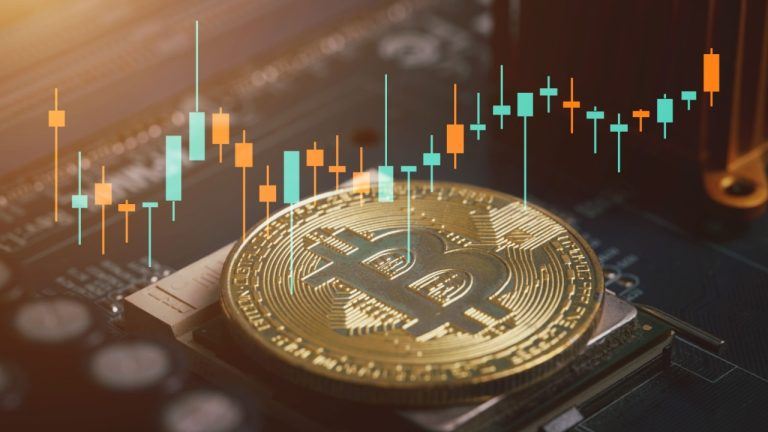

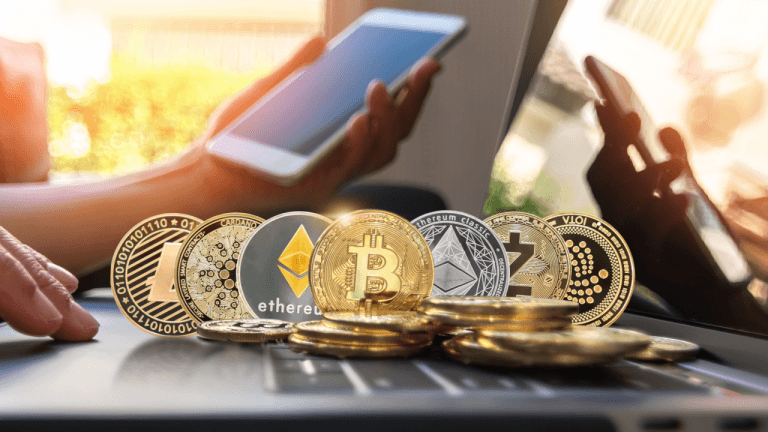
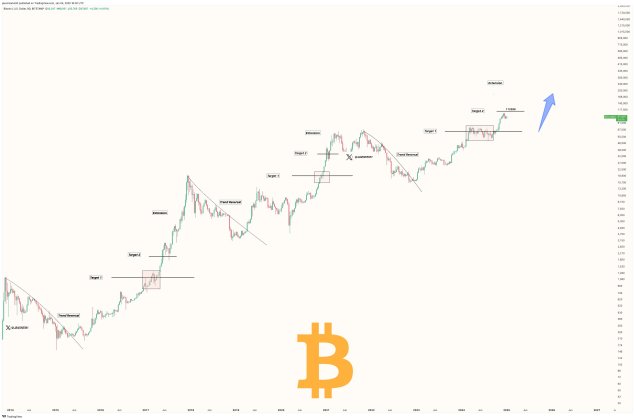

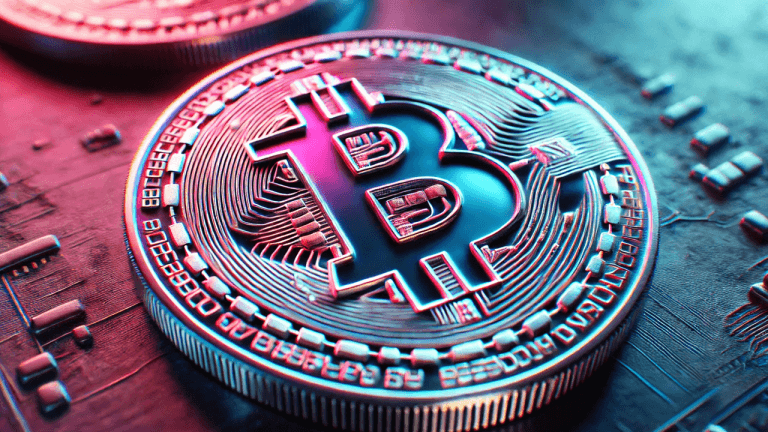
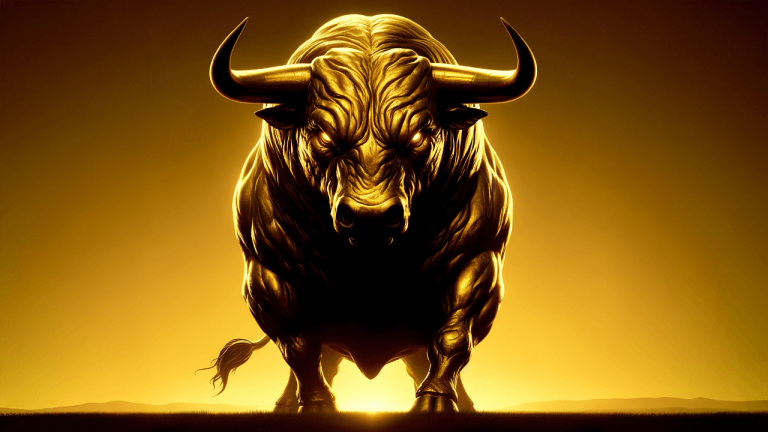

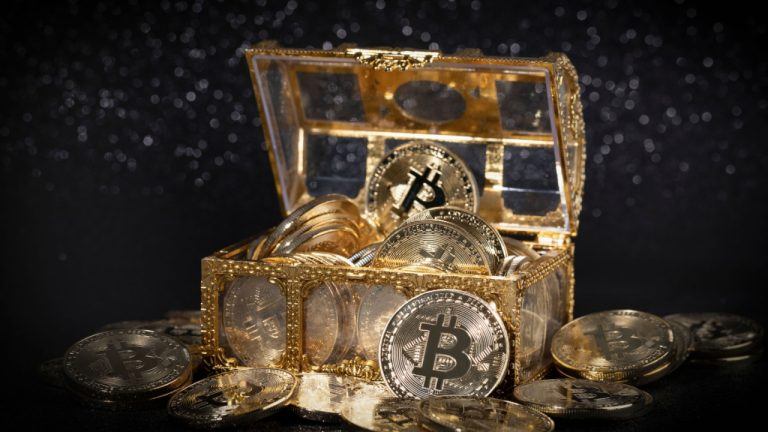




Comments